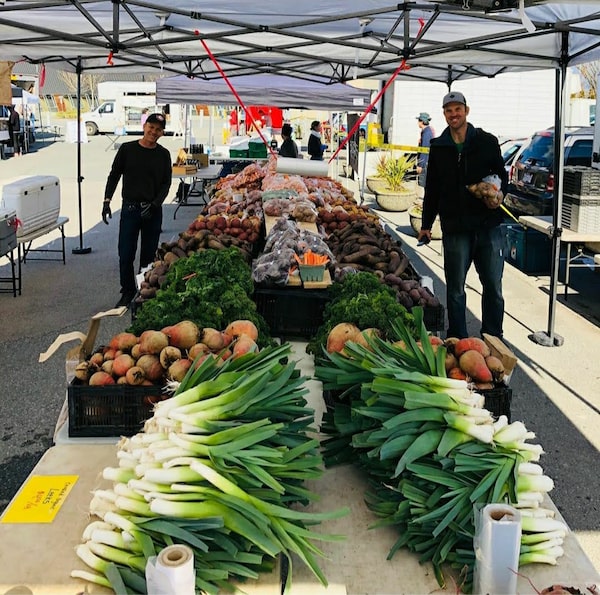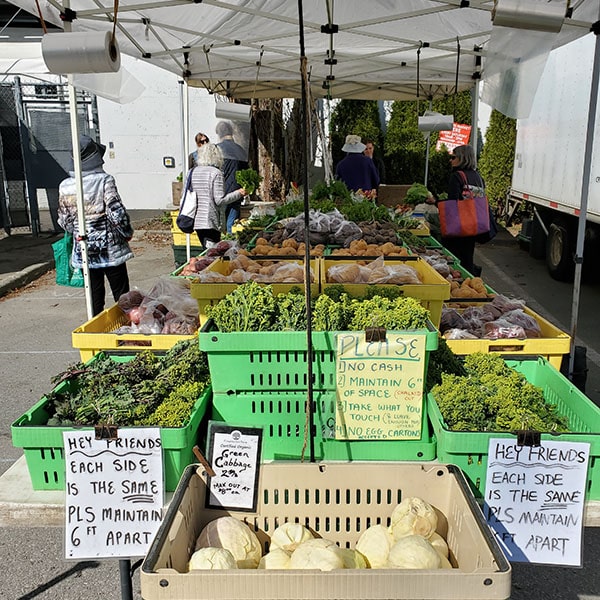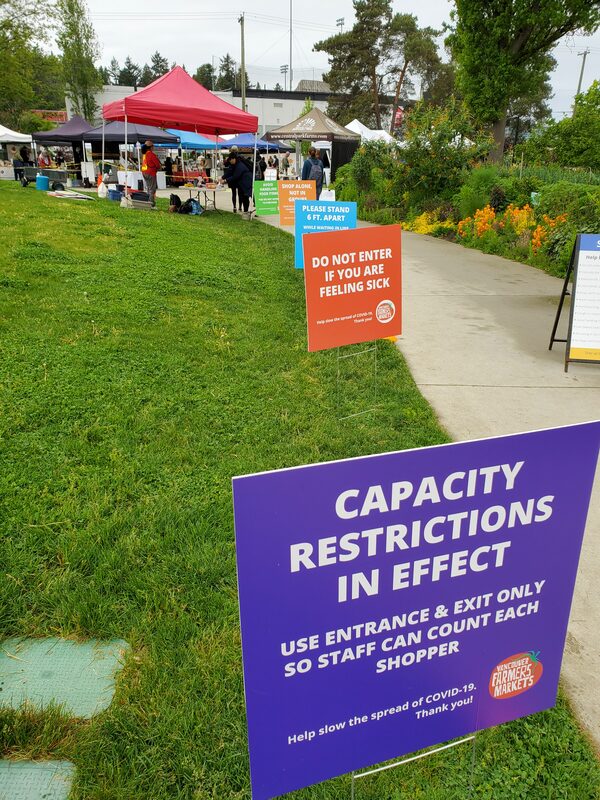
Farmers’ markets, deemed an essential service, have been allowed to keep selling food, albeit with varying levels of restrictions and adjustments depending on the health regulations in each province or territory.Forstbauer Farm/Handout
Jessica Wilson loves food. The colours, shapes, textures and smells. But mostly, she loves the ritual of food, and for her that means going to three farmers’ markets every week in Calgary to buy fresh produce and check in with the local vendors, most of whom she knows by name.
When the pandemic hit, Ms. Wilson was seized by panic: What was going to happen to her beloved farmers’ markets, a mainstay of her diet – and indeed, her life – for the past 10 years?
It was a concern shared by farm-to-table food lovers in Canada, who immediately reached out to their favourite markets and specific vendors to find out what services were offered.
It turns out a lot. Farmers’ markets, deemed an essential service, have been allowed to keep selling food, albeit with varying levels of restrictions and adjustments depending on the health regulations in each province or territory.
Most, big or small, have gone digital: Customers place orders with their favourite vendors or get market staff to assemble what’s seasonal, and arrange a pickup time for their orders. At the Charlottetown Farmers’ Market in Prince Edward Island, for instance, customers are asked to stay in their cars and arrive with a homemade sign with their name on it. The market staff puts the bags directly into their trunk.

VFM has online ordering where customers choose from a real-time product list from more than 50 vendors and prepay for their shopping bag before heading to the market.
Others, like Toronto’s Evergreen Brick Works’ Saturday Farmers Market, have been providing a “farm-in-a-box” experience with different seasonal produce, various cheeses and freshly baked breads each week for $50. However, with Ontario starting to reopen slowly for business, the market, too, will open June 13, with about half of its normal vendors (typically 45), who will be behind plexiglass.
“The booths will be smaller, so there is more distance between vendors, and we hope to offer a prepay option to eliminate the need for cash,” says Orit Sarfaty, Evergreen’s chief program officer. “I can’t tell you how excited we are that the ritual of coming every Saturday to the farmers’ market is going to be preserved.
“For many of our customers it’s a sensory and very personal experience. They put immense importance on being able to see and talk to the farmers who grew the cucumbers and tomatoes and potatoes they are going to have for dinner that night.”
In Calgary, Ms. Wilson says two of her three favourite markets – Calgary Farmers’ Market and Crossroads Market – have kept the doors open, but with stringent guidelines. “In the first month they were empty, which was kind of nice because I could shop without going near anyone,” she says. “But things have picked up again. Employees wear masks. There are plexiglass partitions, and no cash. And if you bring your own bags, you bag things yourself. But I am so grateful they were allowed to operate.”

Some of VFM's summer markets started opening in early May, with one entrance and one exit, and capacity checks in place.Handout
Alice Briggs, district manager of Vancouver Farmers Markets (VFM), which oversees eight in the city, says the two winter markets, Riley Park and Hastings Park, have been open since COVID-19 began but with a very different protocol. There are no craft or flower vendors, no live music, and she and her staff carefully regulate shopper capacity. “In other words, we are no longer a community gathering space,” she says. “Food is the focus.”
VFM also has online ordering where customers choose from a real-time product list from more than 50 vendors and prepay for their shopping bag before heading to the market. Some of its summer markets started opening in early May, with one entrance and one exit, and capacity checks in place.
“We also encourage a ‘Shop, Don’t Stop’ mentality so as many people can get through as possible,” Ms. Briggs says. “It’s so important that our residents have access to fresh local food in their neighbourhoods and during a pandemic this has been more important than ever.”
Plan your weekend with our Good Taste newsletter, offering wine advice and reviews, recipes, restaurant news and more. Sign up today.
 Gayle MacDonald
Gayle MacDonald